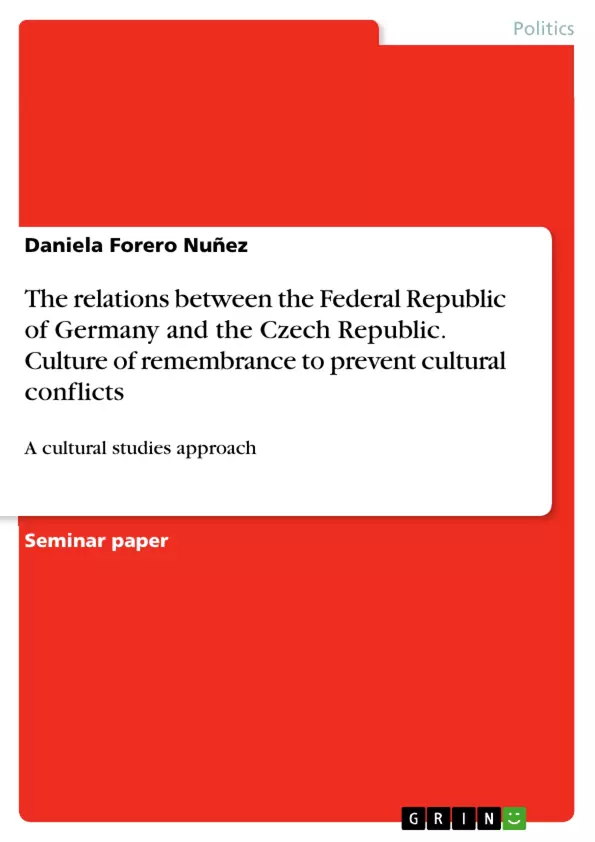This paper aims to answer the question: Why are there no significant cultural conflicts between Germany and the Czech Republic given their historical context? The relations of neighboring countries with each other are almost always more complicated compared to countries that do not share any borders. As such, the case at hand is of similar origin: the relations between the Federal Republic of Germany and the Czech Republic. As they have been co-existing in the same region for ages, the two relatively new democracies have had complications in their relations in the past.
Nevertheless, their policies have been peaceful and cooperationfriendly in the era after the Cold War. Therefore, the re-establishment of the relations between the Federal Republic of Germany and the Czech Republic is short from reaching its thirty-year mark. Seeing that the latest era of stable relations between the Federal Republic of Germany and the Czech Republic was only realized in the last three decades, it is clear that the older generations may not share the same openmindedness as they have other recollections of the past in comparison to the younger generations. The generation that has witnessed the horrors of the Second World War and its aftermath is sure to have darker recollections than those born in their country after it was unified.
This has been an issue that the cultural studies have been taking into consideration in the past decades, which has ultimately resulted in the concept called the culture of remembrance. This newly developing field has multiple subsections to define and describe the place of remembrance and memory in each culture. Therefore, culture of remembrance constitutes a significant part of the approach that will be used throughout this paper.
Inhaltsverzeichnis (Table of Contents)
- Introduction
- Culture of Remembrance
- Analysis
- Database and Experiment Design
- Descriptive Statistics and Graphic Representation
- Hypothesis Testing
- Conclusion
- Sources
- List of Variables
- List of Figures
Zielsetzung und Themenschwerpunkte (Objectives and Key Themes)
This paper examines the relationship between Germany and the Czech Republic through the lens of cultural memory, exploring why significant cultural conflicts have not emerged despite their shared history. By focusing on the culture of remembrance, the study aims to understand the attitudes and perceptions of individuals in both countries towards each other.
- Culture of remembrance as a framework for analyzing German-Czech relations
- The impact of historical events, particularly the Nazi occupation of Prague, on individual and collective memory
- The role of memory in shaping identity and perceptions of other countries
- The influence of European integration on German-Czech relations
- The impact of education and social interaction on fostering understanding and cooperation
Zusammenfassung der Kapitel (Chapter Summaries)
- Introduction: This chapter sets the context for the research, highlighting the complex history of relations between Germany and the Czech Republic. It introduces the research question and outlines the methodology, which focuses on the concept of culture of remembrance. It also introduces the three primary hypotheses that will be examined in the analysis.
- Culture of Remembrance: This chapter delves into the concept of culture of remembrance as a framework for analyzing historical events and their impact on identity. It defines key terms such as collective memory and individual memory, and explores their role in shaping perceptions of other countries. The chapter also discusses the concept of non-remembrance and its significance in understanding cultural memory.
Schlüsselwörter (Keywords)
The primary keywords and focus topics of the text include: cultural memory, culture of remembrance, collective memory, individual memory, Germany, Czech Republic, German-Czech relations, historical events, European integration, identity, attitudes, perceptions.
- Quote paper
- Daniela Forero Nuñez (Author), 2020, The relations between the Federal Republic of Germany and the Czech Republic. Culture of remembrance to prevent cultural conflicts, Munich, GRIN Verlag, https://www.grin.com/document/1134686



